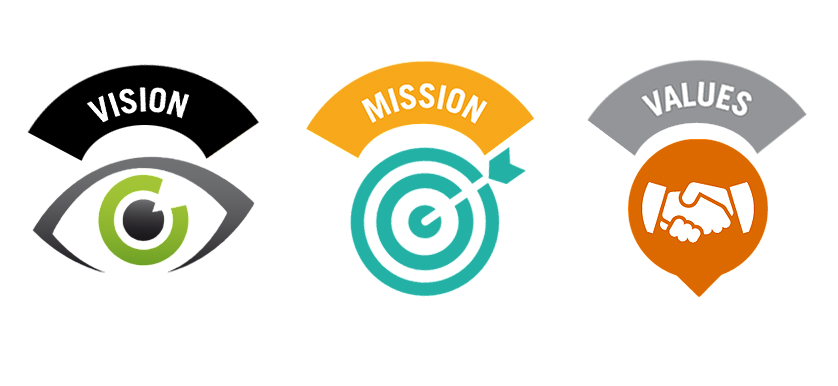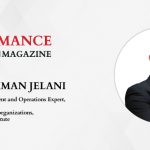Performance Magazine Portrait Feature: Marcela Presecan
 When it comes to finance and business management, few people within the TKI family can boast a more impressive path to professionalism than our Head of Research, Marcela Presecan.
When it comes to finance and business management, few people within the TKI family can boast a more impressive path to professionalism than our Head of Research, Marcela Presecan.
Having started early on in life, with a Bachelor’s Degree in Economics at the Babes-Bolyai University in Cluj-Napoca, followed by a Master’s Degree in Business Administration at the Lucian Blaga University of Economics in Sibiu, her studies were then complemented by the Business Acumen in Principles of Management and Small Business Management course, acquired at the Montgomery County Community College, SUA, Blue Bell, Pennsylvania.
Following her studies, she delved right into her trade of choice, first acquiring 5 years of professional experience in financial services and retail banking, which were then augmented by a 5-year practice in designing and implementing performance management systems for organizations worldwide.
During the 10 years she has spent thus far into the financial & business management fields, her focused intent on maximizing knowledge bestowed upon her several moments of particularly high importance, such as when the Unicredit Consumer Financing Magazine featured her as the consultant with the biggest financial value in a credit sold in 2010.
One year later, in 2011, Ms. Presecan was chosen to be a financial consultant for ING Bank Amsterdam N.V., spending 4 years working with financial indicators, performance indexes and product performance mechanisms. This gave her insight into how to best facilitate client account management and how to structure financial advisory services, in such a way that the client’s experience is always maximized.
Later on, in 2014, she joined the TKI family as a junior researcher and was assigned her most significant project up to that point – redesigning & publishing the new Top 25 KPIs Reports, a multi-publication series in the field of performance management.
While Ms. Presecan’s determined personality was one of the biggest driving factors in her success, she attributes part of her achievements to several sources which provided her with guidance and inspiration. For her, Harvard Business Review represents a valuable pool of knowledge when it comes to business writing & smart management thinking. Moreover, Kaplan & Norton’s books and papers provided her with a strong theoretical foundation over Performance Management’s core basic tenets.
In addition to this, she notes that “The Accountant” can provide a valuable lesson to many people who aim for excellence without necessarily being in the spotlight – you don’t have to be the star to be the most important person in the room. You can be exceptionally talented at your work, whilst exceptionally adept at keeping a low profile. Performance does not need a parade or bells & whistles. It simply requires the drive and skills to be the best.
Lastly, Ms. Presecan mentions that the colleagues she interacts with on a day-by-day basis present her with increasingly creative ways of thinking about problems and solutions, which she sees as a blessing, in a line of work as challenging as Performance Management.
With all that said though, our Head of Research fondly posited that her greatest source of unwavering support and inspiration has been her partner in life, because regardless of circumstances, he has always been there for her, as a stalwart pillar of affection, insight and reason.

Performance Management – early beginnings
Her first dip into the sea that is Performance Management began as a researcher for The KPI Institute, where she worked on several projects right from the get-go:
- Maintaining and updating smartkpis.kpiinstitute.org, the world’s largest database of documented KPIs
- Coordinating and releasing the Top 25 KPI Reports – 2016 and 2018 editions
- Coordinating and releasing the Performance Management in 2014: ASEAN Special Edition report
Additionally, Ms. Presecan became an active member of the editorial team, where her profound knowledge of the field enabled her to provide highly insightful information for numerous publications, such as The KPI Dictionaries Series, the State of Employee Performance Management Report series, the GCC Hospitals Performance Reports, the State of Performance Improvement and Key Performance Indicator Practice Report, as well as the PERFORMANCE Magazine series.
After several years, having mastered the core research activities within TKI, she moved on to becoming a consultant. In this newfound role, Ms. Presecan became the main off-site liaison for leading on-site projects that involved the design, development and implementation of performance management systems & solutions, like the Balanced Scorecard (BSC).
Besides that, due to her expertise, she became one of the main individuals within the company providing secondary research expertise for a consistent portfolio of assignments conducted by The KPI Institute, which were either self-owned or contracted.
Furthermore, her knowledge allowed her to aid the company in the design of both standard and customized performance management tools, whilst providing full support for an entire network of on-site TKI consultants and assisting with the successful delivery of performance management architectures for companies activating in a wide range of industries, such as public governance, IT, telecommunications, healthcare and finance.
It was only natural that with such outstanding mastery over the field, she’d develop into a fully-formed practitioner in her own right, moving on to becoming the lead auditor delegated by the Global Performance Audit Unit, the audit division of The KPI Institute, which assesses, validates and offers best practice recommendations for business strategies and performance management.

Performance Management – a sea of knowledge in a cup of practice
At its inception, Performance Management represented a revolutionary way of viewing business management – an approach that continuously evolved and shifted, along with the organization that made use of it, turning economic paradigms on their heads.
“Similar to a car engine, performance management is what drives organizational decision-making, steering the organization in the desired direction.”
Whilst PM has mostly remained the same for the past almost 30 years, as it did back when Norton & Kaplan first theorized its basic concepts, its status as a practice and discipline have yet to fully mature. For all intents and purposes, PM feels very much in its infancy still, lacking the theoretical rigor needed to bring uniformity to practice.
This is one of the reasons why to this day, there is a shocking amount of confusion regarding the differentiation of organizational PM and individual PM – two elements that share the same field, but are otherwise quite different in concept and application.
That being said, PM’s novelty is precisely its biggest selling point for most businesses. When companies saw the sensational success of companies such as GM, Adobe, Google and so on, they began going past merely conducting yearly employee appraisals – they wanted more.
Luckily for them, Performance Management, whilst a vast field of expertise, is also quite beginner friendly, in that it has a low barrier of knowledge entry and a high skill ceiling. What this entails is that anyone can get into PM and those that are especially adept at picking up information can become exceptional practitioners, which is exactly what Ms. Presecan loves about her work.
“[Performance Management] is synonymous with a language that I can easily understand and can also be easily understood by women and men entrepreneurs that want their businesses to hold out and succeed. Performance management is, as I view it, the razzmatazz of microeconomics nowadays.”
Precisely this aspect was what sold our Head of Research on Performance Management – the fact that it is a clarity-centered system that ensures transition towards superior organizational management, from a plethora of perspectives.
- Firstly, it clearly defines an organization’s identity, by guaranteeing that work will be done and that resources will be allocated towards those elements that matter the most.
- Secondly, PM allows you to quickly make use of your newfound identity to pinpoint the current state of your processes, enabling the company to implement projects that actively support growth.
- Thirdly – arguably one of PM’s most important functions, it provides you with an opportunity to reshape organizational behaviours as defined by the sum of elements that proactively contribute to how employees act and perform in the overall organizational environment.
This capacity allows performance management to have a significant impact over organizational design, HR management, leadership capabilities and internal motivational structures.
Knowing thyself – a core aspect of business management
Performance & business management are areas of expertise that come with their highly specific assortment of challenges and issues. One distinct hurdle pertains to finding a solution that befits an organization in the most effective manner, regardless of the PM area that that solution applies to.
For most organizations, there will always be that grey area which matches their needs, which requires a solution that is personalized according to their identity.
Speaking of identity, this is another hurdle of Performance Management. Generally speaking, when companies look to establish an organizational persona, this is done from a marketing perspective.
Therefore, when many CEOs, directors or heads of departments look to implement a management system, they get the wrong idea by thinking that such a framework will unequivocally match the current identity of the organization they work for.
What they need to understand is that PM requires a more intrinsic perspective – it demands for an identity that matches that of a company’s internal stakeholders, while taking into account the various requirements of the same company’s external ones.

That is why, as an organization, you have to know yourself first – your values, vision and mission, before you claim to know what others may want of you. A best practice for implementing a reliable PM system requires it to be built on a clear strategic identity, which the main stakeholders of the organization can identify themselves with.
Once this is established, you can look to employ the right framework & tools, to link your organizational strategy to your everyday operations.
In doing so, you can then strengthen your internal capabilities, which govern the organizational structures, through a process of continuous learning and development. This nurtures enhanced communication, transparency and a shared vision among all company employees, enabling you to implement performance management practices with the utmost effectiveness.
However, none of this is possible if you do not understand what your identity is, first and foremost. Just like you cannot chart a mission before deciding what type it will be – trade, reconnaissance, military, you cannot implement a management system without understanding your fundamental traits, what you stand for.
Whether you prefer an agile, easily-adaptable, small-sized company or a large-scale, comprehensive, multi-layered entity, this aspect dictates how you will ultimately shape up your sytem from inside.
Generating value & clarity for employees
Aside from helping companies build a cohesive identity, Ms. Presecan mentions that another achievement of Performance Management is the overall improved process of communication between different organizational functions.
Today’s companies start small, but success rewards them with increased wealth, whether in financial form or human resources. This leads to a growing layer of organizational complexity, with several levels. PM attempts to bring clarity over every individual’s role as a part of the whole, providing them with an avenue to more effectively contribute to the organizational strategy.
“By setting clear roles and responsibilities for all employees, communicating performance results more often, encouraging individual initiatives and putting mechanisms in place that ensure effective information sharing, organizations that benefit from Performance Management put into practice ensure a transparent and accountable working environment, characterized by trust and loyalty.”
These last two mentions, of trust and loyalty, are paramount for the maturation of the system, because the only way PM can thrive is when one gets the employees’ buy-in. However, how does one do that? Two words – explaining benefits, or in more words, clearing up what’s in it for the employee.
In layman’s terms, employees offer their labour in exchange for remuneration. In similar fashion, employees offer their buy-in willingly when they understand what such a management system bestows upon them.
Performance Management entitles them to receive periodic feedback, based on their performance and predefined conditions, which shirks any of the old issues relating to criticism on personal grounds. Through PM, employees gain much more clarity around the impact that their individual activities have over the company’s end results and how these correlate to expectations.

Moreover, with a system of this nature, one’s employees get to be active participants within open performance discussions, thus generating a better understanding over what is being measured and why. This also allows them to get better insight into managerial tidbits, enabling the possibility of improved career prospects, as they get accustomed to the system’s structure.
With all that said though, clarity and value won’t do much good if organizations don’t accept the fact that people are unique and they must be approach differently based on their inherent distinctiveness. Talent goes to waste if it is squandered, suppressed, mismanaged or not provided with the correct environment in which it can grow.
Even more challenging is the fact that talent can still go to waste in the right environment, as a result of people defaulting on it because there is a lack of appropriate reward for their efforts.
“It is my opinion that talent management is the hardest thing there is and that poor communication & feedback are the main reasons for underperforming teams. I have come to the conclusion that there is a lot of attachment in any professional relationship, and harnessing that attachment is in itself a leadership skill.”
From a people perspective, managing employees in what is essentially an Individual Performance Management system format (IPM) means creating a healthy environment, based on principles of mutual respect & understanding for different values and philosophies.
From a more technical one, a successful organization must see that individual objectives and KPIs are aligned to the departmental ones and that employees are adequately rewarded, based on their contribution levels to the organization’s achievements.
Managing life in a sensible fashion
Arriving at the end of our interview, Ms. Presecan notes that one of the newest trending topics nowadays, personal performance – whilst an interesting and tentatively positive addition to family performance, has to be handled with great care, lest we wish to end up in the negatives.
Measuring and managing our performance in the private sphere, in an objective fashion, can improve our health or enable us to acquire new skills, however we have to be realistic when looking to setting personal targets.
On more than one occasion, unavoidable outside factors become deciding variables for our personal performance. If we push ourselves too much just to overcome them, we might end up feeling disappointment, dismay, discontent or even depression instead of accomplishment or happiness.
Ms. Presecan mentions that for her, 10,000 steps a day has been the main performance target outside work, which is a reasonable enough approach to her personal performance overall. Anything else related to performance in her personal life is casual and far from over-demanding.
This brings us to the last point we talked about – balance, which our Head of Research considers a crucial aspect of maintaining a healthy lifestyle.
“As long as you manage your time effectively during work, it will never interfere with your personal life. In the same manner, if you manage your time effectively in your personal life, you will always be prepared for successfully handling a busy day at work.”
She does state that ultimately, the choice of allocating time & resources is ours and no guide or handbook can ever override what we have set out to do. Nonetheless, we should always come to terms with our abilities and boundaries. We can look to push to the limits, but if we practice that for too long, it might spill over into negative consequences.
On the one hand, it’s always a welcomed sight to see someone that is so driven, they are looking to learn new things every day, in every moment. Such individuals push and develop the world further.
On the other, it is equally welcomed to notice someone who has accepted who they are and what they can do at a certain point in time, understanding when to take things at a slower pace.
Image sources:“Listen to your inner compass when it tells you to take it easy, share the load, take some extra time off, spend some time with yourself and decide whether you want to go on or just pause.”

Tags: Interview, Key Performance Indicators, Performance Management, Performance Measurement, Productivity, The KPI Institute





